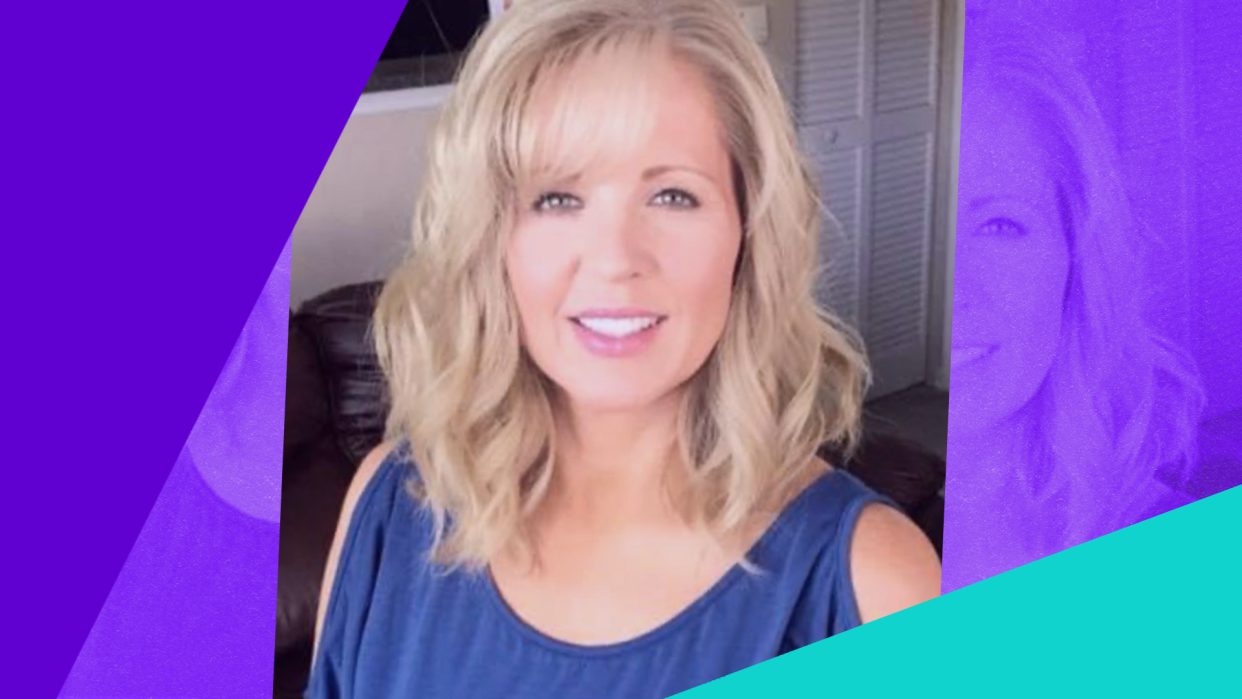'I could barely make it to the bathroom without crawling': Living with lung cancer and COVID-19

Like millions of Americans, Sherry Haines has had COVID-19. But Haines has an underlying health condition that made the virus especially risky for her—she has stage 4 lung cancer.
Haines, 50, tells Yahoo Life that she knew something was off in late June when she developed “extreme fatigue,” along with several other symptoms. “My throat was sore, and I had headaches and muscle aches, I was horribly nauseous and was starting to get chills,” she says. “I just knew that I probably had the virus.”
The Florida resident says she was “a little scared” but notes that her she was otherwise healthy. She was diagnosed with cancer in 2018 and says, while it will never go away, the medication she takes has cleared her tumors and helps to keep her cancer at bay. “I’m a never-smoker,” she says. “I don’t have damaged lungs, all my organs are healthy, I have a healthy heart… . Physically, I’m a healthy person, I just have cancer from a very rare mutated gene.”
But Haines says she was “still nervous, because I have cancer in my lungs.” Little did she know at that point, she would struggle with COVID-19 for months.
“It was awful,” she says. “I had memory loss, chills, headaches, diarrhea, horrible nausea… . I had to go off my cancer medication because I couldn’t eat.” Sherry Haines, lung cancer patient and COVID-19 survivor
Haines went to the emergency room, where she told medical staff that she has lung cancer, along with the suspicion that she might have COVID-19. “They were very concerned,” she recalls. Haines says she was tested for the virus “right away” and then separated from other patients at the hospital, including other suspected COVID-19 patients. “They didn’t want me with other COVID-19 patients. They didn’t want me to be exposed even more,” she says.
Haines says doctors ran some additional tests and gave her fluids, along with anti-nausea medication. Then, she was sent home.
“The emergency room doctor called me two days later and said, ‘Your test is negative but you sound absolutely horrible. I don’t think you’re actually negative,’” Haines says. At the time, Haines says, she was “super, super sick.” Her nausea was “horrible” and she had severe fatigue, along with other flu-like symptoms.
Haines went back to the hospital, where she was given a rapid response test for COVID-19: It was positive. “They gave me a dose of IV antibiotics and more anti-nausea medication,” she says. “But they still didn’t want me in the hospital over concerns I would be exposed more.” So, she was sent home again.
But Haines says she struggled with “terrible” symptoms of COVID-19. “It was awful,” she says. “I had memory loss, chills, headaches, diarrhea, horrible nausea… . I had to go off my cancer medication because I couldn’t eat.”
Eventually, Haines says, “I was down to sucking on ice chips to try to avoid dehydration.” She had to go back to the ER by ambulance at one point because she was struggled to eat and drink due to the crippling nausea. “I ended up losing 12 pounds,” Haines says.
“I could barely make it to the bathroom without crawling,” she says. “I was so weak, I could barely hold my phone.”
Her symptoms didn’t stop there. Haines also says she had dry eyes, a sore nose, swollen feet, neck pain and sensitivity to heat and cold. Even during her recovery, Haines struggled. “After I started to feel better, I ended up with a urinary tract infection,” she says.
“I could barely make it to the bathroom without crawling,” she says. “I was so weak, I could barely hold my phone.” Sherry Haines, lung cancer patient and COVID-19 survivor
Overall, Haines says she experienced symptoms for 11 weeks.
“My hair just recently stopped falling out,” she says. “The fatigue started to get better after 11 weeks, and I could finally go on walks and exercise again.”
Now, Haines says she still has some memory issues, including from her time with COVID-19. “Some of that experience is kind of fuzzy,” she says. She also has muscle weakness.
Haines says she’s not sure how she contracted COVID-19 in the first place. “I was really careful. I didn’t live in a bubble, but I didn’t go many places,” she says. “I washed my hands, I wore my mask, and I still got it. COVID-19 is very, very contagious.”

